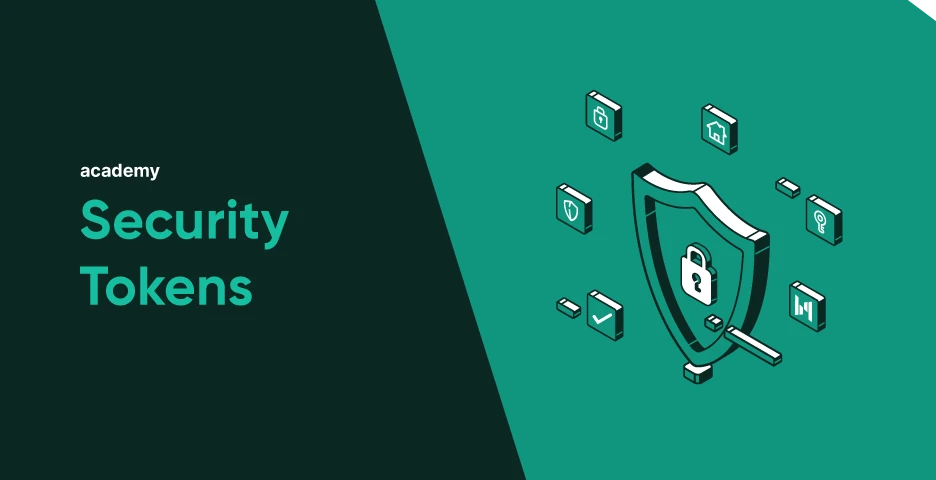Security tokens are a new type of digital asset that represents ownership in a real-world asset, such as a piece of property, a work of art, or a share in a company. These tokens are created under financial regulation using blockchain technology.
Tokenizing an asset allows for the secure and transparent tracking of ownership and transfer of the underlying asset. However, existing government regulations make issuing them burdensome and expensive.
Mintlayer offers several features, including access control lists, that will aid companies in the technical aspect of this process. Multisig allows users to build a token that requires transactions be approved to allow them to be transferred.
What is a Security Token
Security tokens represent an investment, are not required to have a utility, and are subject to government regulation.
This seems simple, but the legal definition and subsequent regulation of securities is very complex. In 1946 Florida orange farmers appealed this issue all the way to the supreme court. The decision in that case coined the “Howey Test”, which is a simple criteria for deciding if a transaction could be subject to securities regulation. A token passes the Howey Test if all four requirements are met:
- There is an investment of money.
- There is an expectation of profits.
- The investment of money is in a common enterprise.
- Any profit comes from the efforts of a promoter or third party.
As regulation has progressed regarding cryptocurrency, projects wishing to raise capital will create other token classes for sale (utility, governance, etc.) to avoid being subject to onerous security regulations.
Other projects are embracing security tokens. They believe that regulation will catch up to these new technologies and having products that can meet regulatory requirements will be an important distinction.
We designed Mintlayer to meet all the needs for a security token platform. Access control lists are a step toward regulatory compliance, although for very large projects maintaining the list may be burdensome. It could be preferable to use Mintlayer’s native multisig to require approval from a governance authority before tokens can be transferred. Embedded token creation is more user friendly than deployer contracts, and our Wasm based software can compile from a wider range of programming languages than many competitors, making it more inclusive for development industry support.
Advantages For Holding Security Tokens
One of the key advantages of security tokens is that you can store them in your own wallet, unlike stock in an online trading account, which requires third-party custody.
We can trade security tokens on digital asset exchanges, just like traditional securities. Unlike traditional securities, which can take 2-4 days to settle trades, a trade on the Mintlayer blockchain is settled in minutes. The market currently absorbs this inefficiency. Faster settlement also frees up liquidity.
Decentralized exchanges can allow for greater liquidity and more efficient price discovery, as well as the ability for investors to easily buy and sell their holdings without signing up for a trading account.
Given enough volume, decentralized exchanges allow for unique and simple arbitrage opportunities that even beginners can participate in. Opening these opportunities up to all participants makes price discovery more efficient.
Mintlayer offers an advantageous opportunity for bridge arbitrage because users can trade Bitcoin directly with tokens on the Mintlayer blockchain (there is no extra risk introduced because of a wrapped token).
Customization
Another benefit of security tokens is that we can customize them to suit the specific needs of the underlying asset.
For example, a token representing a share in a company could be programmed to automatically pay dividends to token holders, or to give them voting rights in company decisions. This can make them more attractive to investors than traditional securities, which rely on the underlying platform or their own accounting departments to manage those benefits.
Companies that issue security tokens through Mintlayer will integrate the Mintlayer wallet with their online voting portal, and create dashboards that would allow users to claim dividends in any token held and approved by the organization.
This increased customization adds value for end users and transfers some responsibility from intermediaries to the end user. Since transactions are recorded on the blockchain, the veracity of a user’s holdings is never in doubt.
Existing Challenges
There are still some challenges to be addressed before security tokens can become widely adopted. First and foremost, there is a lack of regulatory clarity about how security tokens should be treated, which can make it difficult for companies to issue them.
Secondly, there are concerns about the security and reliability of underlying blockchain technologies, as well as the potential for fraud and scams.
We designed Mintlayer from the ground up to use the most secure solutions available. Mintlayer addresses many of the security challenges that other blockchains, such as Ethereum, face.
Mintlayer’s robust feature set, proven ability to issue tokens enforcing KYC regulations, and native Bitcoin interoperability make it an obvious choice for organizations interested in digital security issuance. Mintlayer adheres to Bitcoin’s axioms that made it the first choice for nation state currency adoption.
Conclusion
Security tokens have the potential to revolutionize how real-world assets are owned and traded. As regulation and government oversight becomes more clear, more companies will integrate security tokens into their governance and stock issuance operations.
It’s likely that security tokens will play a significant role in the future of finance, and Mintlayer is poised to become one catalyst that makes that happen.


